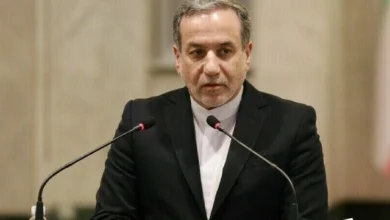In a world where espionage and intelligence operations often remain behind the curtains of international diplomacy, the arrest of Liridon Rexhepi, identified as the manager of Mossad’s financial network in Türkiye, by the Istanbul Police in September 2024, brings to light the ongoing covert battles between nations. This event not only underscores the persistent spy games between Israel and Turkey but also reflects broader geopolitical tensions in the Middle East.
**The Incident and Its Immediate Context**
The arrest of Rexhepi is not an isolated incident but part of a series of operations by Turkish authorities against suspected Mossad operatives. Earlier in the year, Turkey had detained dozens of individuals accused of spying for Israel, signaling a crackdown on foreign intelligence activities within its borders. These actions came in the wake of threats by Israeli intelligence officials to pursue Hamas leaders globally, including in Turkey, which has historically maintained ties with Hamas, viewing its members not as terrorists but as “freedom fighters.”
**Geopolitical Ramifications**
This series of arrests, especially of someone as pivotal as a financial chief, indicates a few critical points:
1. **Deterioration of Israeli-Turkish Relations**: Once on a path to normalization, the relationship between Israel and Turkey has significantly soured, particularly post the Israel-Hamas conflict. Turkey’s arrest of individuals linked to Mossad can be seen as a direct response to Israel’s threats, showcasing Turkey’s intolerance for foreign espionage that could potentially target Palestinian figures on its soil.
2. **Turkey’s Position in the Middle Eastern Power Dynamics**: Turkey’s actions against Mossad operatives reflect its stance against Israeli military actions in Gaza and its broader support for Palestinian causes. This aligns with President Recep Tayyip Erdogan’s rhetoric, positioning Turkey as a critic of Israel on the international stage.
3. **The Role of Espionage in Modern Conflicts**: The arrests highlight how intelligence operations are integral to modern geopolitical strategies. Espionage, in this context, isn’t just about gathering information but also about financial operations, suggesting that the battle between intelligence agencies includes controlling or disrupting the financial lifelines of adversarial groups.
**Broader Implications**
The arrest of a figure like Rexhepi might have several implications:
– **Security and Intelligence**: It exposes vulnerabilities within intelligence networks, prompting both Mossad and other agencies to reassess their operational security and methods.
– **Diplomatic Strain**: Such incidents could lead to further diplomatic strain or even tit-for-tat actions between nations. The public nature of these arrests might also serve as a deterrent or a message to other nations about Turkey’s capabilities and resolve in counterintelligence.
– **Public Perception and Nationalism**: Domestically, these events can bolster nationalistic sentiments, portraying the government as vigilant protectors against foreign espionage, which can be leveraged for political gain.
**Conclusion**
The story of Liridon Rexhepi’s arrest is more than a mere spy tale; it’s a microcosm of the larger geopolitical chess game played in the shadows. It reflects the ongoing tensions, the covert operations that nations undertake, and the delicate balance of power in international relations. While the immediate fallout might be contained within diplomatic circles, the broader implications touch upon the themes of sovereignty, security, and the intricate dance of espionage that continues to evolve in the 21st century. This event, like many before it, will likely be a footnote in public history but a significant chapter in the annals of intelligence warfare.







